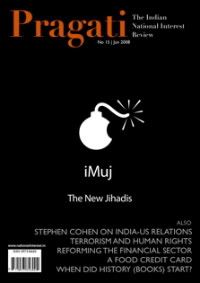California is going to have a major earthquake. I know this, not because the U.S. Geological Survey warned so, but because of the predictions of one John C. Hagee, the founder and senior pastor of Cornerstone Church in San Antonio, Texas. Pastor Hagee believes that Israel, Gaza, and the West Bank do not belong to the Arabs since it was ruled by Ottoman Turks before WWI. He believes in Rapture, Second Coming of Jesus, rebirth of Israel – the usual works.
After Hurricane Katrina, in an interview with Terry Gross, he said that God had punished New Orleans for a “a level of sin that was offensive to God” because of a homosexual parade, and the tropical cyclone was proof “of the judgment of God against the city of New Orleans.”
When same sex marriage was legalized in New England, Rev. Hagee wrote
“Massachusetts has just agreed to recognize same-sex marriages. It will open the door to incest, to polygamy, and every conceivable marriage arrangement demented minds can possibly conceive. If God does not then punish America, he will have to apologize to Sodom and Gomorrah.” He also wrote: “It is impossible to call yourself a Christian and defend homosexuality. Homosexuality means the death of society because homosexuals can recruit, but they cannot reproduce.” [California Kicks Right-Wing Butt]
Now that the California Supreme Court has lifted the ban on same-sex marriage, Rev. Hagee might be hoping that God would unleash his retributions on the Golden State.
God did act, but it was on Rev. Hagee himself. Besides suggesting that Katrina was divine punishment for sin, he had also referred to the Catholic Church as “the great whore” and “false cult system.” After an audio recording of a 1990 sermon, in which he said that God had sent Adolf Hitler to help Jews reach the promised land, surfaced he became a political pariah. Sen. John McCain who, as part of his right wing appeasement policy, had sought and obtained Rev. Hagee’s endorsement called his comment, “crazy and unacceptable” and rejected the endorsement.
Brahman, the unchanging, infinite, immanent, and transcendent reality, cannot laugh, but if there is a God, he definitely is laughing at Rev. Hagee.


